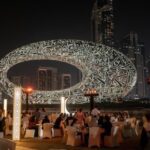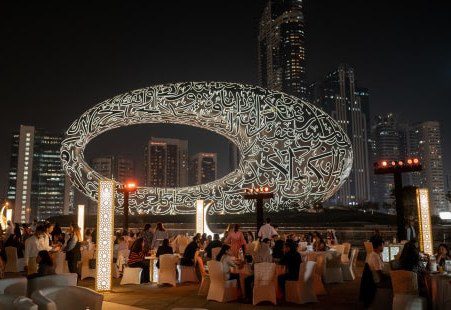
A GUIDE TO RAMADAN IN DUBAI
Ramadan is the most important month of the Islamic calendar for Muslims, and in Dubai it is a time of reflection, spirituality, family bonding and festivities. During the Holy Month, the city comes alive with a range of activities that cater to people of all ages.
Australian’s travelling to the UAE and Dubai in particular are able to enjoy enriching experiences during Ramadan. We answer all the questions travellers may have when considering visiting Dubai this month.
When does Ramadan take place?
As it is based on the Islamic lunar calendar, the dates of Ramadan vary from year to year, but in 2024 it is estimated to begin on 11 March and end on 9 April.
Do I need to fast?
Regardless of your faith, Ramadan is a special month in Dubai. Fasting is not required for non-Muslims. However, you are welcome to try fasting for a day and everyone is respectfully asked to be considerate of those who are practising. Non-fasters don’t have to go hungry – for restaurants and dining areas it is business as usual.
Ramadan etiquette for non-Muslims
Out of respect for this deeply spiritual time for Muslims in Dubai, visitors coming to experience the city during Ramadan can observe some of the points of etiquette below to show their consideration:
- Exercise mindfulness during Ramadan by avoiding consuming food and drink if you’re around people who are fasting.
- Try to be especially considerate and respectful during Ramadan.
- Dress modestly and cover your shoulders and knees in loose-fitting clothing.
Timings during Ramadan
Make the most of the evenings by taking advantage of extended mall hours, transportation services and key attractions during Ramadan in Dubai. Historically shops and restaurants would close in the day during the Holy Month, but Dubai is fully open and the opening hours of malls and dining outlets are even extended to past midnight to cater for those wanting to socialise with families and friends after the daily fast. Visitors looking to enjoy Dubai’s famous weekend brunches or visit the different attractions around the city will still be able to do so.
How to celebrate Ramadan in Dubai
- Ramadan Souq: Dubai Municipality organises this traditional market offering essential Ramadan items and gadgets until April 9th.
- Ramadan District: From March 15th to April 4th, enjoy homegrown brands, entertainment, and unique concepts with a focus on sustainable dining and community cohesion. This year’s Ramadan Majlis will be themed around sustainable dining and community cohesion.
- Ramadan Wonders at Global Village: Experience the Holy Month with traditional iftars, cultural performances, and religious activities at Global Village until April. Explore pavilions representing different countries and shop for a variety of items, from local handicrafts to international brands.
Embrace culture and tradition
• Sheikh Mohammed Centre for Cultural Understanding (SMCCU): Bridging cultural gaps, SMCCU offers activities like traditional cuisine tastings, discussions with Emiratis, and special iftar sessions during Ramadan. SMCCU also facilitates visits to Dubai’s iconic Jumeirah Mosque. Welcoming visitors of all faiths, Jumeirah Mosque hosts guided tours six days a week.
• Ramadan Cannon Firing: Experience the ritual firing of cannons at sunset, known as midfa al iftar, operated by the police force at popular tourist spots like Burj Khalifa and Madinat Jumeirah’s Fort Island.
What happens at the end of Ramadan?
Eid Al Fitr, the festival of breaking the fast, marks the end of the Holy Month. In 2024, it is expected to fall on 10 April. One of the easiest ways to get into the spirit of Eid is to simply wish people in the city an ‘Eid Mubarak’, which translates to ‘blessed Eid’. But beyond that, there’s plenty of opportunity to take part in the celebrations and join the community in marking this important Islamic holiday.
Families usually start the day with an early wake-up and morning prayers inside their home or at a nearby mosque. This is then followed by a lunchtime feast with friends and family to reflect on the previous month of Ramadan. It’s also customary to give gifts of money to children and donate to the less fortunate during this time.
While most of those celebrating tend to spend most of the first day of Eid at home or at the home of friends or family, Dubai comes alive with vibrant celebrations, exciting activities, traditional dance performances, live music and special shows in all the major public spaces across the city.
















